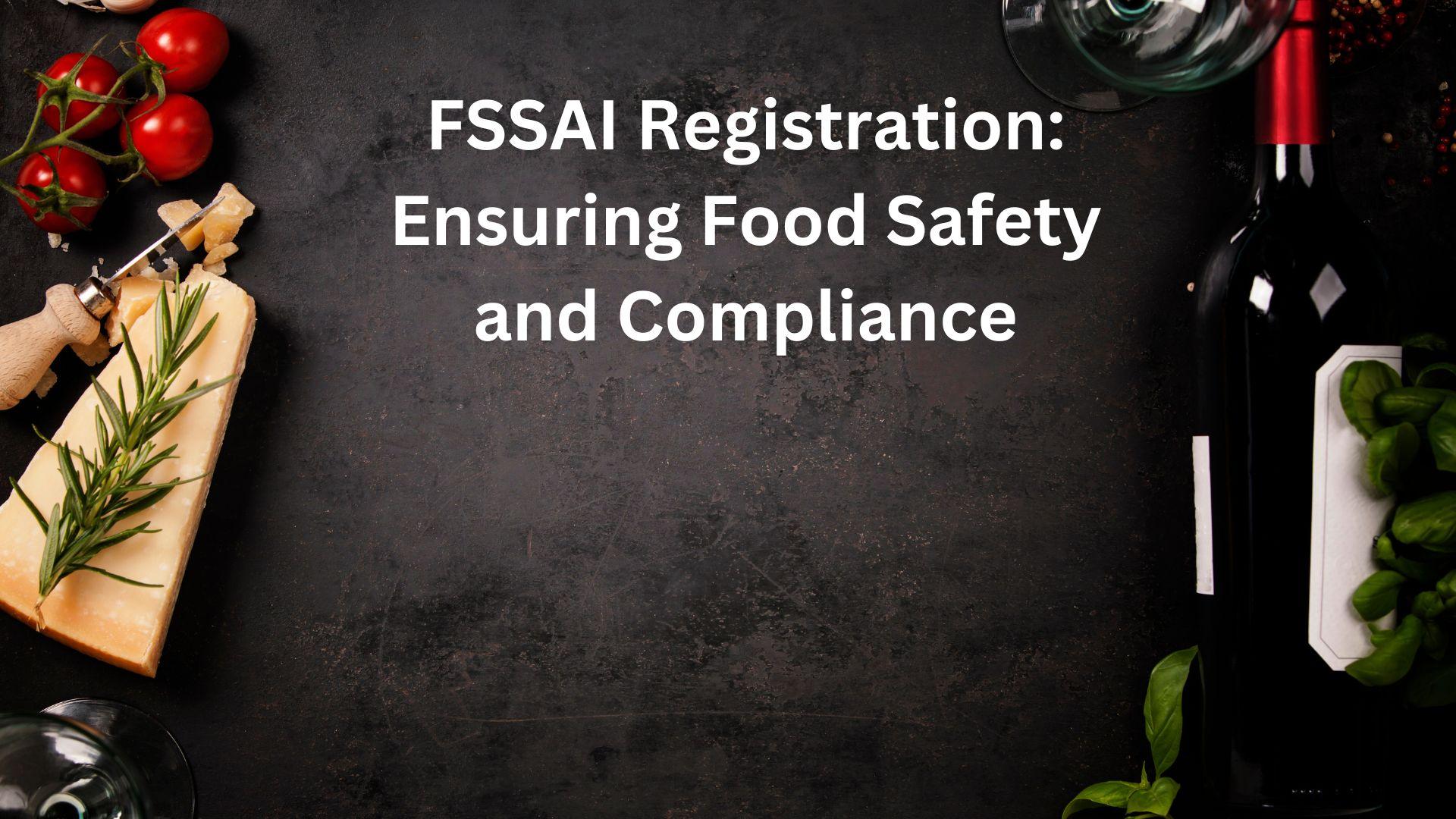The Food Safety and Standards Authority of India (FSSAI) is a statutory body established under the Food Safety and Standards Act, of 2006. It is responsible for regulating and supervising the safety and standards of food products across India. FSSAI registration is a mandatory requirement for food businesses operating in India, aimed at ensuring the safety and quality of food consumed by the public. This article provides a comprehensive overview of FSSAI registration, its significance, and the process involved.
Importance of FSSAI Registration:
FSSAI registration plays a crucial role in safeguarding public health by ensuring that food products meet specified standards of safety and quality. Businesses involved in the manufacturing, processing, packaging, storage, distribution, and sale of food products need to obtain FSSAI registration or license, depending on the scale and nature of their operations. Compliance with FSSAI regulations helps in:
Consumer Confidence: FSSAI registration instills trust and confidence among consumers regarding the safety and quality of food products they consume. It assures consumers that the products have undergone regulatory scrutiny and meet prescribed standards.
Legal Compliance: It is a legal requirement for food businesses to obtain FSSAI registration or license before commencing operations. Non-compliance can result in legal repercussions, including penalties, fines, or even closure of the business.
Market Access: FSSAI registration facilitates market access for food businesses, both domestically and internationally. Many retailers, wholesalers, and export agencies require FSSAI-compliant products, making registration essential for market expansion and growth.
Health and Hygiene: By adhering to FSSAI regulations, businesses contribute to promoting public health and hygiene standards. Compliance with food safety norms helps in preventing foodborne illnesses and ensuring the well-being of consumers.
Process of FSSAI Registration:
The process of obtaining FSSAI registration involves several steps, which vary depending on the scale and nature of the food business. Broadly, it can be categorized into three types:
Basic Registration: This applies to small-scale food businesses such as petty food manufacturers, small-scale industries, and startups with an annual turnover of up to ₹12 lakhs. The process involves submitting Form A to the designated authority along with the requisite documents, including identity and address proof, and a self-declaration of the food safety management system.
State License: Medium-sized food businesses operating within a single state are required to obtain a state license. This includes manufacturers, processors, storage units, transporters, retailers, marketers, and distributors with an annual turnover exceeding ₹12 lakhs but not exceeding ₹20 crores. The application is made through Form B along with supporting documents such as a blueprint/layout plan of the processing unit, a list of directors/partners, and a food safety management system plan.
Central License: Large-scale food businesses operating in multiple states require a central license. This includes manufacturers, processors, importers, exporters, and operators in the food supply chain with an annual turnover exceeding ₹20 crores. The application is made through Form B along with additional documents such as NOCs from the municipal corporation or local body, certificate of analysis, and details of machinery and equipment.
Upon submission of the application, the FSSAI authority reviews the documents and conducts inspections, if necessary, to verify compliance with safety and hygiene standards. Once approved, the FSSAI registration/license is issued, which is valid for a specified period and subject to renewal as per regulations.
Key Documents Required for FSSAI Registration:
The following documents are commonly required for FSSAI registration:
Identity Proof: Aadhar card, PAN card, voter ID, passport, or driving license of the proprietor/partner/director.
Address Proof: Electricity bill, water bill, property tax receipt, or rental agreement of the premises where the business is located.
Proof of Business Entity: Certificate of incorporation, partnership deed, or memorandum of association, depending on the legal structure of the business.
Blueprint/Layout Plan: Layout plan of the premises indicating the dimensions, area allocated for different activities, and location of machinery, equipment, and storage facilities.
Food Safety Management System Plan: Details of the food safety management system implemented by the business to ensure compliance with FSSAI regulations.
NOCs and Certificates: No-objection certificates from the municipal corporation or local body, certificate of analysis from a recognized laboratory, and other relevant certificates as applicable.
Also Check: Fssai License Renewal
Conclusion:
FSSAI registration is a critical aspect of food business operations in India, aimed at ensuring the safety and quality of food products consumed by the public. By obtaining FSSAI registration or license, businesses demonstrate their commitment to food safety standards, legal compliance, and consumer welfare. The process of registration involves fulfilling specified criteria and submitting necessary documents to the FSSAI authority for approval. Compliance with FSSAI regulations not only promotes public health and hygiene but also facilitates market access and consumer trust. Therefore, food businesses must prioritize FSSAI registration as an integral part of their operations to contribute to a safer and healthier food ecosystem in India.





